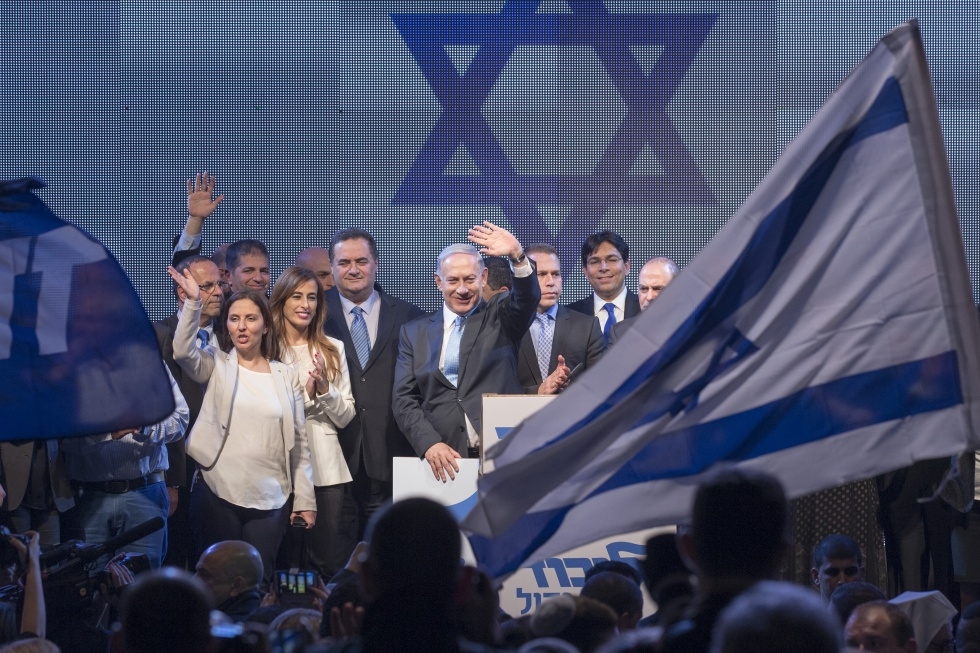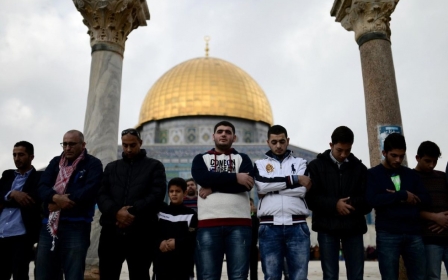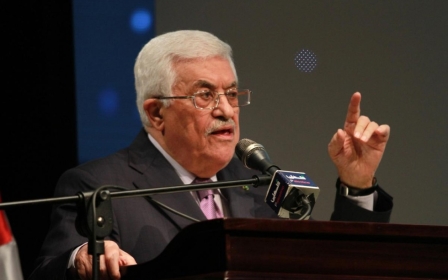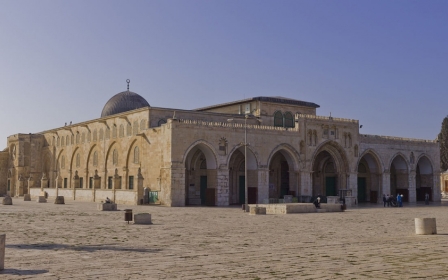The death of the Israeli left

The Israeli left, if it has ever existed at all, is dead. The Israeli Peace Camp, the preferred way to designate the left in the Israeli context, breathed its last breath about 15 years ago and has never been resurrected. Two main factors led to its demise back then, but even in their combination, they should have been insufficient in bringing on the clinical death that ensued.
First was the failure of the US-mediated Camp David talks between Israel and the Palestinians, concluding with the notion that “there’s no Palestinian partner,” a canard made popular by Israel’s prime minister at the time, Ehud Barak.
The other factor was the outbreak of the second Intifada - the suicide bombers exploding buses on Israeli streets and instilling a new and unprecedented level of fear. The first factor ended all hope on the Israeli left, and the second produced intense despair, and this mix gave rise to ever more widespread apathy, indifference and ignorance.
Israeli mass media enlisted in the campaign to brainwash, stupefy, repress and befog, voluntarily promoting Israeli propaganda while offering its audience trivialities and entertainment until the occupation dropped entirely off Israel’s political agenda. Peace was no longer an objective or even a dream. Israel believed itself chaste and was living in denial.
The fact that the Israeli peace camp could shatter so easily gives rise to serious, troubling questions, including: how real and how steadfast was it to begin with, if this sequence of events was enough to pulverise it almost completely?
Israel’s political map shifted far to the right following these tectonic events: the right wing’s extreme nationalism and blatant racism became legitimate. What until not long ago was considered the moderate right wing is today the centre, and what was the centre morphed into “the left” or even “the extreme left”.
On the periphery of this political landscape a few authentic leftist and peace groups still operate, but they are isolated on the margins and lack legitimacy. Courageous, steadfast groups like B’Tselem, Breaking the Silence, Rabbis for Human Rights, Physicians for Human Rights, Machsom Watch, Anarchists Against the Wall, Ta’ayush and even Peace Now have no real influence on the political map in Israel and face a systematic campaign of delegitimisation.
Virtually no protest is heard in the public squares of Israel’s cities. While in 1982, 400,000 Israelis marched in protest against the Sabra and Shatila massacres in Lebanon, although those atrocities were not perpetrated directly by Israel itself; if today, heaven forfend, another such massacre were to occur, a demonstration with even 400 people would be very unlikely and protesters who did show up would probably be violently dispersed by the police.
In the outgoing Knesset, there’s not a single member (MK), and certainly not a Jewish MK, whose first priority is the struggle to end the occupation. None of the Jewish parties puts this issue at the top of its agenda, with the possible exception of Meretz, which has become a small faction without real influence.
The Arab parties in Israel are entirely excluded from the political discourse and have no real role in it. No possible coalition in the next government, even if headed by Labor or the Zionist Camp as it now terms itself, would have any intention of including Arab parties. Labor is a centrist party in every way, and indeed historically is Israel’s occupation party: its leaders were the founding fathers of the settlement enterprise, and the party is responsible for today’s situation no less and perhaps even more than is the Likud. Labor-led governments have never evacuated a single settlement in the territories. The only leader to have done so thus far was Ariel Sharon.
In a few weeks, Israelis will again go to the polls to elect a Knesset. The election will have one of three outcomes: another right-wing, religious, nationalist government headed by Benjamin Netanyahu; a government headed by the Zionist Camp and a Labor Party coalition; or a national unity government that includes both. Per the latest polls, the first is the more likely scenario, but something could still change during the weeks remaining. In any case, from the standpoint of the prospects for peace or for an agreement, for the alignment of Israeli policy with international law or for an end to the occupation, no one should harbour any expectations that such developments might occur after this upcoming election.
If the next government is led by Netanyahu, it will bring us more of the same: an Israel that callously ignores the broad global consensus obtaining today, which does not recognise the Israeli occupation and opposes its perpetuation. The ball will be in the global court where the world’s nations must decide whether to acquiesce in the continuation of the existing situation, though there’s never really a status quo in this part of the world. Israel is always intensifying the occupation, building more and more settlements and destroying the remaining prospects, if any, for a two-state solution.
If Isaac Herzog and Tzipi Livni are able to form a government, which in Israel will be called leftist but will be a centre-right government in every way, that government will bring no historic change either. There is no chance that a Herzog-Livni government will end the occupation. Rather the government would enter negotiations that would go on for years; Herzog has already announced that he is allocating five years for negotiating - an outrageous and unrealistic schedule - a time period for which there is no need if Israel’s intentions are honourable, and which will only destroy any remaining prospects for an agreement.
As the years of futile manoeuvring drag on, perpetuating what are already the longest-running peace negotiations in history, the world will stop doing what it had begun doing recently: applying pressure on Israel, including the first signs of real sanctions. Neither a peace agreement nor an end to the occupation will be forthcoming under such a government, and meanwhile the world will be anaesthetised into inaction once again.
A similar scenario is likely if Israel again names a unity government to include the two major parties, Likud and the Zionist Camp. Past experience demonstrates that Labor and Isaac Herzog personally would readily join such a government if they can’t form a different one. A unity government will be a Likud government in all respects, with the Zionist Camp as fig leaf. This, too, will be a government of paralysis.
Thus one cannot expect change to emerge from within Israeli society. Life is too good here and the people are too brainwashed. In the present situation, Israelis have no incentive to leave the territories. On the basis of this assumption, an end to the occupation will be forthcoming if and only if there is external pressure on Israel: in the form either of diplomatic and economic pressure like that faced by the Apartheid regime in South Africa, or of a terrible bloodbath that we must hope never occurs.
In Israel today, whether in the political sphere or elsewhere, there is no alternative leadership sufficiently courageous, determined and strong to advance a just agreement. The upcoming elections certainly will not result in such leadership. In the meantime, the right wing in Israel is becoming increasingly stronger and the ranks of the left ever weaker, while the centre transforms into a right-wing entity in disguise.
As things now stand, with the world having yet to commit to determined action, there are only two sources of hope for change in Israel: one is the thought that other evil regimes resembling Israel’s occupation have fallen by themselves, when least expected - white rule in South Africa, the former Soviet Union, the Berlin wall, the communist bloc’s iron curtain. Apart from which, there is a saying common in this part of the world, battered and bleeding as the region has been for many decades now: one must be enough of a realist to believe in miracles.
An Israeli left-wing miracle has yet to happen; that we will witness one in the foreseeable future is highly doubtful.
- Gideon Levy is a Haaretz columnist and a member of the newspaper's editorial board. Levy joined Haaretz in 1982, and spent four years as the newspaper's deputy editor. He was the recipient of the Euro-Med Journalist Prize for 2008; the Leipzig Freedom Prize in 2001; the Israeli Journalists’ Union Prize in 1997; and The Association of Human Rights in Israel Award for 1996. His new book, The Punishment of Gaza, has just been published by Verso.
The views expressed in this article belong to the author and do not necessarily reflect the editorial policy of Middle East Eye.
Photo: Benjamin Netanyahu and party's members gather on stage during a campaign meeting ahead of the early elections for the 20th Knesset on 5 January (AFP)
New MEE newsletter: Jerusalem Dispatch
Sign up to get the latest insights and analysis on Israel-Palestine, alongside Turkey Unpacked and other MEE newsletters
Middle East Eye delivers independent and unrivalled coverage and analysis of the Middle East, North Africa and beyond. To learn more about republishing this content and the associated fees, please fill out this form. More about MEE can be found here.





